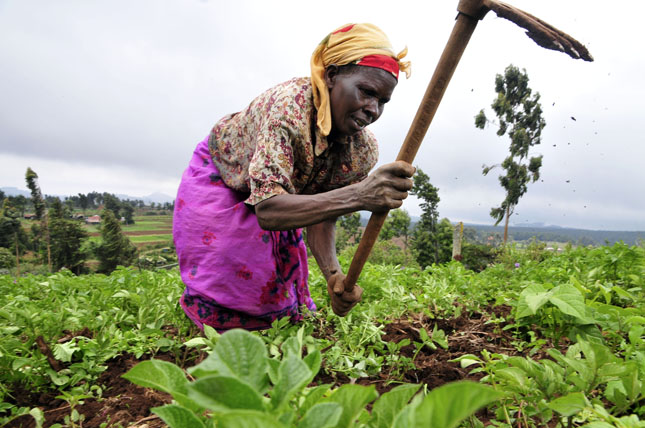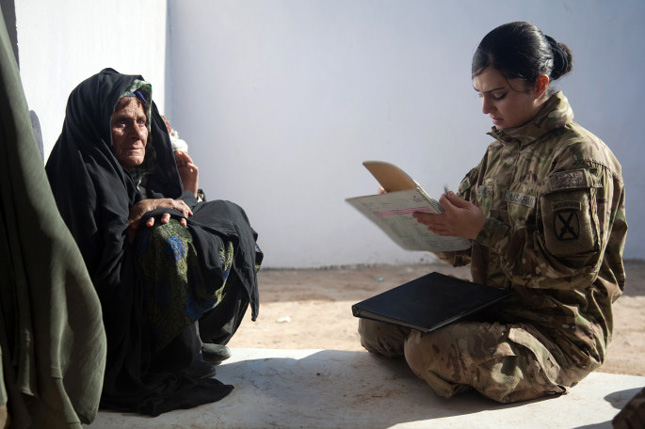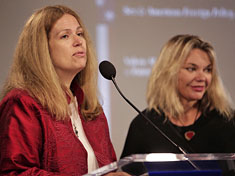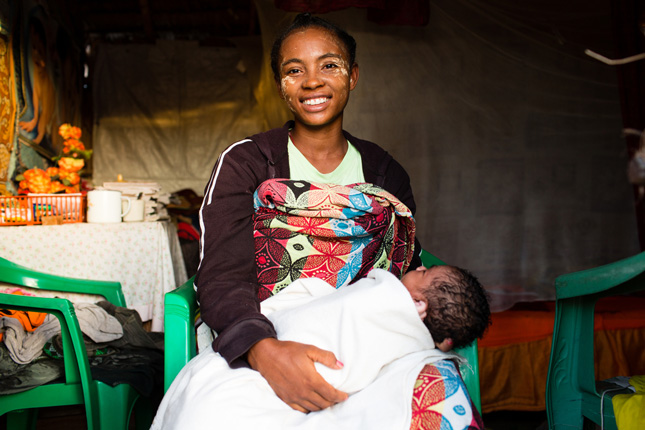-
Bixby Report Explains Cross-Cutting Effect of Family Planning on Food Security, Climate Change
›July 16, 2015 // By Linnea Bennett
“With current neglect of family planning, the UN’s recent projection of a 2100 world population of up to 12.3 billion is a possibility,” says a report from the University of California, San Francisco’s Bixby Center for Global Reproductive Health. Increased voluntary family planning efforts are needed, the authors contend, to meet existing demand for contraceptives, stabilize the threat of global food insecurity, and reduce carbon emissions that contribute to climate change.
-
The Hillary Doctrine: Sex and American Foreign Policy (Book Launch)
›
When Valerie Hudson evaluates the strength of a nation, whether food security, wealth, peacefulness, or quality of governance, she finds one important thread that underlies it all. “One of the most important factors in the determination of these things is in fact the situation, and security, and status of women,” said Hudson at the Wilson Center on June 24. [Video Below]
-
Peter Schwartzstein, National Geographic
After Spark of Hope, Iraq’s Marshes Are Again Disappearing
›July 13, 2015 // By Wilson Center StaffAs Saddam Hussein drained Iraq’s famed marshes to punish the rebellious tribesmen who lived in them, Amjad Mohamed packed his few possessions, grabbed his fishing rod, and fled south to Basra with his extended family.
-
Women’s Equality Not Just a Moral, But National Security Issue, Say Valerie Hudson and Patricia Leidl
›
“Compare those societies that respect women and those who don’t,” says Texas A&M Professor Valerie Hudson, quoting former USAID Deputy Administrator Donald Steinberg, in this week’s podcast. “Who’s trafficking in weapons and drugs? Who’s harboring terrorists and starting pandemics? Whose problems require U.S. troops on the ground? There’s a one to one correspondence.”
-
Parson Rambinizandry and Marie Williamson, Blue Ventures
Conservation Organization Helps Women Bring Health Care to Rural Madagascar
›
Two months ago we sat down with some of our community health workers to brainstorm ideas for International Women’s Day. What would engage women, what could bring about positive change in their community? Something different to the normal celebrations, perhaps a petition for a midwife? This seemed like a great idea on paper, but would it create false hope in a village where the public health center has been closed for years?
-
Pope Francis’ Encyclical Calls for Integrated Development – Just Don’t Say “Reproductive Health”
›
Pope Francis sparked worldwide discussion and jubilation among many green advocates after releasing Laudato Si, the first Papal encyclical to focus directly on the environment. The pontiff touched on everything from pollution and sustainable development, to anthropogenic climate change and water security in his 180-page missive.
-
A State Divided: A Snapshot of India’s Water-Energy Choke Point
›The landscape of the northeastern Indian state of Meghalaya is rapidly changing. What was once a predominately agricultural economy has shifted to coal mining with significant consequences for people and the environment. “Once you extract coal from the land, it’s really hard to go back to an agricultural economy,” says ECSP’s Sean Peoples in an interview with Wilson Center NOW, about the Global Choke Point film, Broken Landscape.
-
De Souza: In Era of Man, Demography Needs to be Part of Environmental Security Discussion
›A new article from the Wilson Center’s own Roger-Mark De Souza explores how population trends can bolster community resilience in the face of climate change and other security threats. De Souza argues that demographic trends such as age structure help determine how well a population is able to respond to and bounce back from shocks, especially environmental ones like drought and famine.
Showing posts from category livelihoods.








